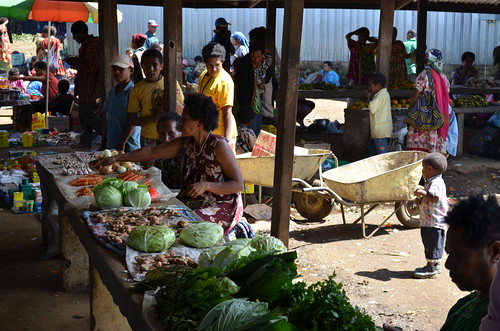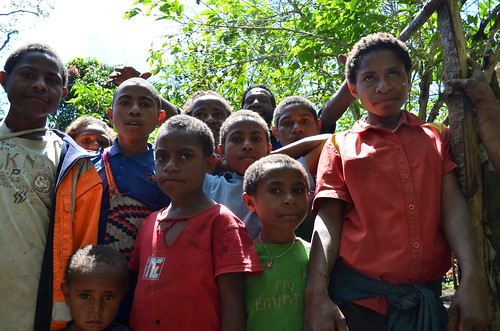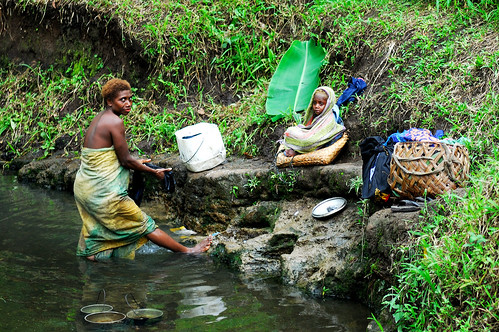Difference between revisions of "Adopting from Papua New Guinea"
(→After Adoption) |
|||
| Line 20: | Line 20: | ||
{{#eimage:https://farm3.staticflickr.com/2409/2265841409_ebdd3c98e4.jpg|410x579px|thumb|'''Washing day, Papua New [[Guinea]].'''<BR/>Source: flickr.com.}} | {{#eimage:https://farm3.staticflickr.com/2409/2265841409_ebdd3c98e4.jpg|410x579px|thumb|'''Washing day, Papua New [[Guinea]].'''<BR/>Source: flickr.com.}} | ||
| − | + | ||
=Hague Convention Information= | =Hague Convention Information= | ||
| + | Papua New [[Guinea]] is not party to the Hague Convention on Protection of Children and Co-operation in Respect of Intercountry Adoption ( Hague Adoption Convention ). Therefore, when the Hague Adoption Convention entered into force for the United States on April 1, 2008, intercountry adoption processing for Papua New [[Guinea]] did not change. | ||
=Who Can Adopt= | =Who Can Adopt= | ||
| + | To bring an [[adopted]] child to United States from Papua New [[Guinea]], you must be found eligible to [[adopt]] by the U.S. Government. The U.S. Government agency responsible for making this determination is the Department of Homeland Security, U.S. Citizenship and Immigration Services (USCIS). Learn more. | ||
| + | |||
| + | |||
| + | In addition to these U.S. requirements for [[Adoptive Parents|adoptive parents]], Papua New [[Guinea]] also has the following requirements for [[Adoptive Parents|adoptive parents]]: | ||
==Residency== | ==Residency== | ||
| + | |||
| + | There is a minimum six-month period of residency required for [[Adoptive Parents|adoptive parents]], but they need not be permanent residents. | ||
==Age of Adopting Parents== | ==Age of Adopting Parents== | ||
| + | |||
| + | The Government of Papua New [[Guinea]] requires no age limit for [[Adoptive Parents|adoptive parents]] if they are healthy, fit, and capable of caring for the child. | ||
==Marriage== | ==Marriage== | ||
| + | |||
| + | Prospective [[Adoptive Parents|adoptive parents]] must be legally married. | ||
==Income== | ==Income== | ||
| + | |||
| + | Prospective [[Adoptive Parents|adoptive parents]] must be financially stable. | ||
==Other== | ==Other== | ||
| + | N/A | ||
=Who Can Be Adopted= | =Who Can Be Adopted= | ||
| − | + | You cannot [[adopt]] a child in Papua New [[Guinea]] unless he or she meets these requirements of Papua New [[Guinea]]. In addition to these requirements, a child must meet the definition of an orphan under U.S. law for you to bring him or her back to the United States. Learn more about these U.S. requirements. | |
=How to Adopt= | =How to Adopt= | ||
| − | |||
== Adoption Authority== | == Adoption Authority== | ||
Revision as of 06:18, 8 April 2014
Contents
Hague Convention Information
Papua New Guinea is not party to the Hague Convention on Protection of Children and Co-operation in Respect of Intercountry Adoption ( Hague Adoption Convention ). Therefore, when the Hague Adoption Convention entered into force for the United States on April 1, 2008, intercountry adoption processing for Papua New Guinea did not change.
Who Can Adopt
To bring an adopted child to United States from Papua New Guinea, you must be found eligible to adopt by the U.S. Government. The U.S. Government agency responsible for making this determination is the Department of Homeland Security, U.S. Citizenship and Immigration Services (USCIS). Learn more.
In addition to these U.S. requirements for adoptive parents, Papua New Guinea also has the following requirements for adoptive parents:
Residency
There is a minimum six-month period of residency required for adoptive parents, but they need not be permanent residents.
Age of Adopting Parents
The Government of Papua New Guinea requires no age limit for adoptive parents if they are healthy, fit, and capable of caring for the child.
Marriage
Prospective adoptive parents must be legally married.
Income
Prospective adoptive parents must be financially stable.
Other
N/A
Who Can Be Adopted
You cannot adopt a child in Papua New Guinea unless he or she meets these requirements of Papua New Guinea. In addition to these requirements, a child must meet the definition of an orphan under U.S. law for you to bring him or her back to the United States. Learn more about these U.S. requirements.
How to Adopt
Adoption Authority
The Process
Traveling Abroad
Applying for Your U.S. Passport
A valid U.S. passport is required to enter and leave Papua New Guinea. Only the U.S. Department of State has the authority to grant, issue, or verify U.S. passports. Getting or renewing a passport is easy. The Passport Application Wizard will help you determine which passport form you need, help you to complete the form online, estimate your payment, and generate the form for you to print-all in one place.
Obtaining Your Visa
In addition to a U.S. passport, you also need to obtain a visa. A visa is an official document issued by a foreign country that formally allows you to visit. Where required, visas are attached to your passport and allow you to enter a foreign nation. To find information about obtaining a visa for Papua New Guinea, see the Department of State's Country Specific Information.
Staying Safe on Your Trip
Before you travel, it's always a good practice to investigate the local conditions, laws, political landscape, and culture of the country. The State Department is a good place to start. The Department of State provides Country Specific Information for every country of the world about various issues, including the health conditions, crime, unusual currency or entry requirements, and any areas of instability.
Staying in Touch on Your Trip
When traveling during the adoption process, we encourage you to register your trip with the Department of State. Travel registration makes it possible to contact you if necessary. Whether there's a family emergency in the United States, or a crisis in Papua New Guinea, registration assists the U.S. Embassy or Consulate in reaching you. Registration is free and can be done online.
After Adoption
What resources are available to assist families after the adoption?
Many adoptive parents find it important to find support after the adoption. Take advantage of all the resources available to your family -- whether it's another adoptive family, a support group, an advocacy organization, or your religious or community services.
Here are some good places to start your support group search:
Child Welfare Information Gateway
North American Council on Adoptable Children
Adoption Services Support Group for Adopting Persons
SOURCE
Intercountry Adoption, Bureau of Consular Affairs. U.S. Department of State Country Information










